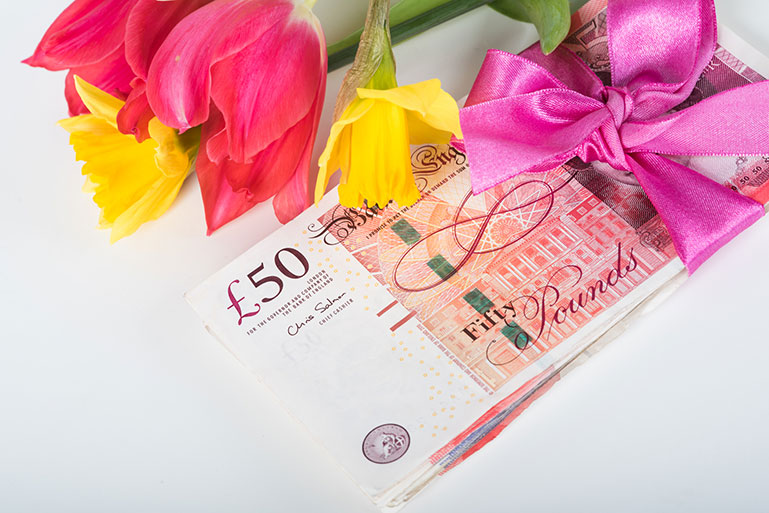Tax on Giving Money to Children and Grandchildren Explained
10/12/2022 - 7 minutes readTax on giving money to children is a frequently asked question by our clients who are looking to support their children and grandchildren during this cost of living crisis.
Tax on gifting money to children is also a popular query in this festive season and we have had a lot of enquiries about gifting cash to the younger members of the family.
We have summarised tax-friendly financial gifting options for this Christmas so you can plan to minimise tax on giving money to children:

Tax on giving money to children – Cash Gifts
While giving and receiving cash does not incur a tax bill, if you die within seven years of making the transfer then inheritance tax (IHT) rules will come into play. This applies if the value of your estate exceeds £325,000 at death, with amounts over this limit potentially attracting a tax-charge payable by your beneficiaries.
The good news is that several exemptions apply outside the seven-year rule that allow people to make financial gifts without worrying about a hefty IHT bill.
There are many reasons you may want to give a cash gift to your loved ones. It could be to help pay for a wedding, a new car, or university fees, or to help give the younger generation a leg-up onto the property ladder. Others want to gift cash to reduce the value of their estate for inheritance tax (IHT) purposes, with the tax on cash gifts often being far less than the 40% IHT charge that many are facing.
What is the maximum I can gift to my child or grandchild?
Essentially, you can give as much as you like – but if you want to ensure it’s tax-free, you’ll need to consider both how much you give, and when you give it.
Everyone gets an annual gifting limit of £3,000 that’s exempt from IHT. Any unused exemption can be carried forward to the next year, but only for one year. Alongside that, it’s possible to give smaller gifts of up to £250 to as many people as you like, as long as they haven’t already received your £3,000 annual exception.
In addition, people can also give money away that comes out of their regular income – a regular payment that does not affect the giver’s standard of living.
These are known as ‘normal expenditure out of income’. They include:
- – paying rent for your child
- – paying into savings account for a child under 18
- – giving financial support to an elderly relative
If you’re giving gifts to the same person, you can combine ‘normal expenditure out of income’ with any other allowance, except for the small gift allowance.
For example, you can give your child a regular payment of £60 a month (a total of £720 a year) as well as use your annual exemption of £3,000 in the same tax year.
Gifts for weddings or civil partnerships
Each tax year, you can give a tax-free gift to someone who is getting married or starting a civil partnership. You can give up to:
- – £5,000 to a child
- – £2,500 to a grandchild or great-grandchild
- – £1,000 to any other person
If you’re giving gifts to the same person, you can combine a wedding gift allowance with any other allowance, except for the small gift allowance.
For example, you can give your child a wedding gift of £5,000 as well as £3,000 using your annual exemption in the same tax year.
Inheritance tax rules on giving gifts
Inheritance Tax may have to be paid after your death on some gifts you’ve given.
Gifts given less than 7 years before you die may be taxed depending on:
- – who you give the gift to and their relationship to you
- – the value of the gift
- – when the gift was given
The 7-year rule for Inheritance tax
No tax is due on any gifts you give if you live for 7 years after giving them – unless the gift is part of a trust. This is known as the 7-year rule.
If you die within 7 years of giving a gift and there’s Inheritance Tax to pay on it, the amount of tax due after your death depends on when you gave it.
Gifts given in the 3 years before your death are taxed at 40%.
Gifts given 3 to 7 years before your death are taxed on a sliding scale known as ‘taper relief’.
Taper relief only applies if the total value of gifts made in the 7 years before you die is over the £325,000 tax-free threshold.
Taper relief
| Years between gift and death | Rate of tax on the gift |
|---|---|
| 3 to 4 years | 32% |
| 4 to 5 years | 24% |
| 5 to 6 years | 16% |
| 6 to 7 years | 8% |
| 7 or more | 0% |
Keeping records of gifts you have given
The person who deals with your estate will need to work out what gifts you gave in the 7 years before your death. You should keep the following records:
- – what you gave and who you gave it to
- – the value of the gift
- – when you gave it
How can MCL Accountants help?
Contact MCL Accountants on 01702 593 029 if you would like further information about Tax on giving money to children or if you need any assistance with the preparation and submission of your business accounts or self-assessment tax returns to HMRC.

0 Comments